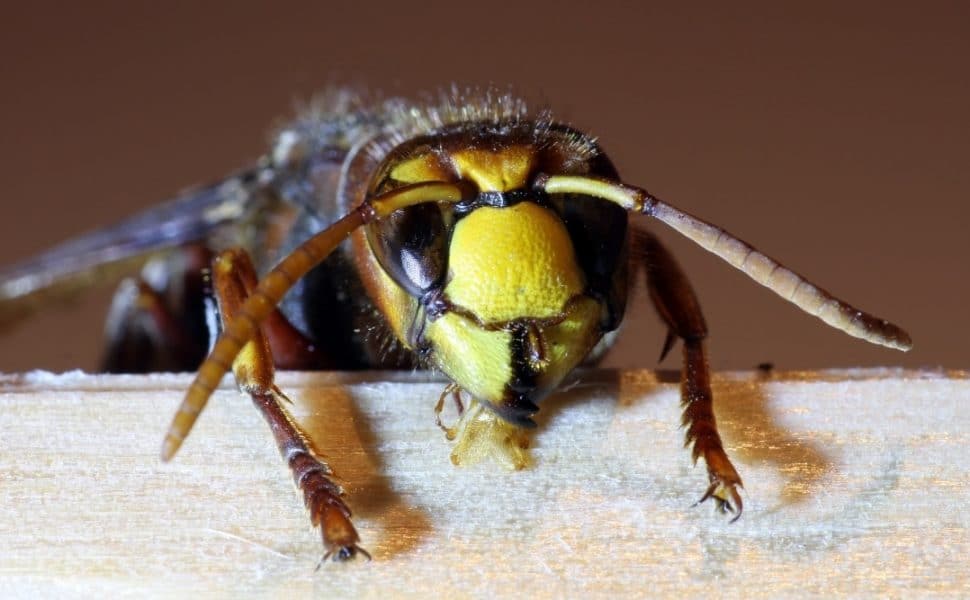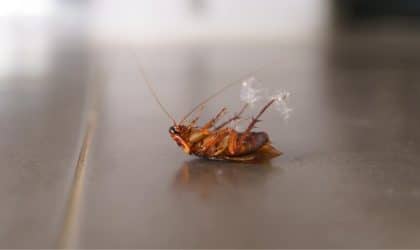Why Do Hornets Attack? 3 Reasons Why, and How You Can Prevent Them
Did you just get attacked by a hornet but aren't sure why? In this article, we look at three common reasons this might happen, as well as what you can do to prevent it from happening in the first place.

Homeowners are divided when it comes to hornets and other types of wasps. Some say they’re aggressive, but some experts believe they’re peaceful insects that only retaliate when they need to. But why do hornets attack in the first place?
There’s always two sides to every story. Looking at it from a hornet’s point of view, many attacks happen when they are trying to defend the hive. Most parents would protect their own families in the same fashion. But what about when they attack unprovoked?
Hornet may look scary. But most of the time, they act passively, attacking only when they have to. Let’s jump in and find out the most common reasons you’ll deal with them coming after you.
You’ve Provoked Them
Hornets are actually one of the most peaceful stinging insects out there. It sounds ironic, but it’s true. They’re passive when no harm comes to them, so they don’t become aggressive for no reason.
However, if you accidentally pin them down or try to swat them, you’ll force them to retaliate. These insects can sting multiple times and cause swelling, discomfort and allergies that can lead to life threatening complications.
You’ve Threatened Them
Like most social insects, hornets are the most aggressive when they feel like you’re threatening their home. If you come near their nest, you’ve given them a reason to go on the attack.
These bugs defend their colony fiercely. Just being near their nest is enough of a threat for them, causing them to storm out with a frenzy.
According to Ehrlich Pest Control, you need to maintain a radius of more than 3 meters from the nest to prevent these bugs from attacking you.
Here’s a video from Reactions that shows how wasps behave when their nest is in danger. Wasps are closely related to hornets, so they have the same behavior towards protecting their colony.
They’re Raiding a Beehive
This one is not about attacking humans. It’s about attacking what we humans raise.
Raising bees is not only great for keeping fruits and flowering plants healthy and blooming. It’s also incredibly convenient to produce your own organic honey as a healthier substitute to sugar.
However, hornets have a reputation of attacking beehives and stealing their honey and pupae. They often raid the waxy caverns of a beehive when food is scarce. And they can attack multiple hives too.
It happens after a hornet scout discovers a beehive and marks it with a pheromone. It then leaves and comes back with more hornets to invade the hive, kill all the bees, eat all the honey and steal all the pupae to feed them to their grubs.
This raid not only costs bee lives. It also costs us humans money, time and all that effort into raising those bees. To see how it happens, here’s a video from National Geographic that hornets can attack beehives.
Dealing With Hornet Attacks
Now that you know why hornets attack. Here are our take on some popular solutions that claim to stop hornets from charging at you.
Swatting Doesn’t Work
Unless you’re using a Tennis Racket Zapper that can stop hornets immediately, we don’t recommend swatting them. As we have mentioned earlier, it does not work. Not only will you miss them since they’re very agile fliers. The possibility of being stung is too high.
Waiting Doesn’t Work
Hornets come and go, depending on the season. However, they definitely don’t just die out on their own. Waiting for a nest to die during winter doesn’t work because not all the hornets die from the cold. Their queens have adapted to hibernate and start a new colony during spring.
Cucumbers Don’t Always Work
A lot of websites offer cucumbers as a solution to repel hornets. Interestingly, there’s not enough research to prove this. All we have that get us going is this study from Oxford that only tells us why some insects won’t lay eggs on surfaces with cucurbitacins on them ( the chemical found in cucumber that’s said to repel bugs)
Wrap Up
So why do hornets attack? Outside forces cause these bugs to attack. It’s the most common link between all the reasons that we mentioned. Just remember to keep yourself out of the strike zone. Contact the right people to treat these insects, and don’t keep bees in your backyard. If you do all this, you’re in the clear.
Share this post
Save time and money on pest control
Subscribe to expert DIY pest control tips, pest control product reviews and information.




